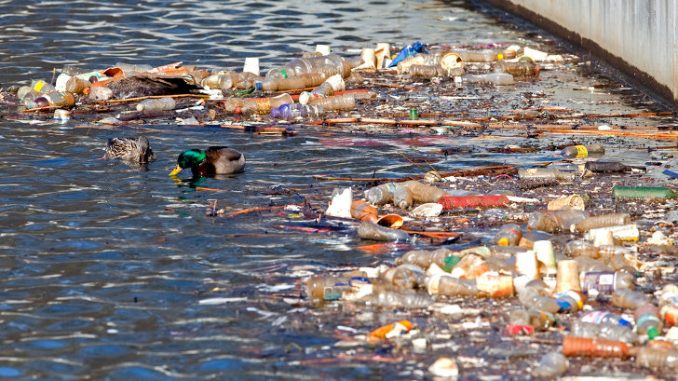
Water pollution and types of water pollutants
Water pollution:
- Any chemical, biological and environmental change in water causes adverse effect on health of living beings is called water pollution.
- When certain substances are present in water beyond their normal limit then the water is term as polluted.
Types of water pollutants:
I. On the basis of origin, water pollutants are divided as; natural pollutant and man-made pollutant.
1. Natural pollutants:
- Natural impurities present in water represents natural pollutants.
- Gases like H2S, NH3, Co2 etc dissolved in water during raining.
- Minerals such as Ca, Mg, Ar etc dissolve in water from soil
- Various materials such as clay, mud, organic wastes get suspended in water
2. Man-made pollutant:
- Water pollutants which are generated by human activity are called man-made pollutants.
- Sewage; which contains many pathogenic organism and decomposable organic wastes
- Agricultural wastes such as insecticides, pesticides etc get access to water during rain and flooding
- Industrial wates; contains highly toxic chemicals
- Other pollutants; thermal pollutants, radioactive substances etc
II. On the basis of environmental and health effects, water pollutants are classified as;
1. Infectious pollutants:
- Disease causing microorganisms present in water
- They are the most serious type of water pollutants in water because they are directly related to health of consumers.
2. Oxygen demanding pollutants:
- Decomposable organic matters added to water represents O2 demanding wastes.
- Microorganisms utilize oxygen present in water to oxidize organic matter. Therefore, level of dissolved O2 decreases in water that seriously affects aquatic aerobic organisms such as fishes.
3. Plant nutrients:
- Nitrate and phosphate are key plant nutrients.
- If the concentration of nitrate and phosphate increases in natural water system such as lakes, ponds etc, they facilitate heavy growth of aquatic plants like Algae. The condition is known as eutrophication.
4. Thermal pollutants:
- Warm water (thermal pollutants) discharges in natural water system causes serious consequences.
- Thermal pollutants cause decreases in solubility of Oxygen in water.
- Also rise in temperature of natural water sources facilitates growth of pathogenic organisms. Increased growth and activity of microorganisms causes depletion of dissolved oxygen as they utilize it for their metabolic activities.
5. Radioactive pollutants:
- Various radioactive elements can enter into water source from nuclear reactor and from laboratories.
- Radioactive pollutants are highly toxic to living beings and they can induce mutation.
6. Inorganic pollutants:
- Inorganic pollutants like mercury, cadmium, Arsenic etc can enter into water source from various industries and from mining, ores.
- If these inorganic compounds present in water beyond normal limit, they cause serious health effects to consumers.
7. Suspended solid wastes and sediments:
- In water suspended solids come from erosion of soil, from mining etc.
- Suspended solids interfere with penetration of light into deeper layer of water system that directly affects photosynthetic organism in bottom of water.
- Suspended wastes also provide attachment site for pathogenic microorganisms.
